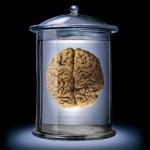 Epistemology is the science of knowledge. The word derives from the Greek episteme, which means knowledge.
Epistemology is the science of knowledge. The word derives from the Greek episteme, which means knowledge.
Epistemology proper didn’t actually begin until Rene Descartes (1596-1650), but the stuff of epistemology — logic, reason, deduction, induction, et cetera — has been with us since the Ancient Greeks.
Epistemology is an extraordinarily complicated discipline that starts with three simple words:
Consciousness is awareness.
That is an epistemological axiom which cannot be refuted or denied: any theory of knowledge that purports to refute that consciousness is awareness must rely on the awareness of his consciousness to refute it.
First there exists the external world, and then there exists the awareness of it.
These two things are separate, but not equal: by definition, existence comes first, before there can be an awareness of it.
In the words of the philosopher Douglas B. Rasmussen:
“Consciousness is ultimately of or about something other than itself — it is ultimately relational.”
The argument that one cannot prove anything beyond one’s own consciousness was, contrary to what you may have heard, refuted long ago, and thoroughly so, by Thomas Aquinas, when he wrote the following:
“No one perceives that he understands except from this, that he understands something: because he must first know something before he knows that he knows.”
This insight was explicated upon by the neo-Thomist priest Celestine Bittle, in his 1945 textbook The Whole Man:
“Consciousness,” says Father Bittle, “is irreducible [because] consciousness can’t be reduced to other facts or broken into component parts.”
Father Bittle goes on to describe consciousness as “an ultimate datum of experience … at the very root of all mental activity.”
This is called by neo-Thomists “the reflexive nature of consciousness,” which means that consciousness, by its very definition — by nature of what it is — cannot be conscious of only itself since consciousness is awareness, which by definition means that it must first be aware of some thing.
In other words, “I’m only aware of my faculty of awareness” is a meaningless statement.
Why?
Quoting another erudite neo-Thomist epistemologist, Jacques Maritain:
“The first thing thought about is being independent of the mind…. We do not eat what has been eaten; we eat bread. To separate object from thing is to violate the nature of intellect” (Jacques Maritain, The Degrees of Knowledge, 1938).
The ramifications of all this may be summed up thus:
The existence of the external world (i.e. reality) and the awareness of it (which is to say, consciousness) form the very underpinnings of all knowledge.
Whether scientists know it or not and whether scientists like it or not, every field of every scientific endeavor, and every part of every field of every scientific endeavor, no matter how postmodernistic the curriculum, and no matter how relativistic the agenda, assumes the following:
There exists an external universe, which human consciousness does not in any way create but rather apprehends and measures.
That is the proper starting point of any philosophy of science, as well as the rest of learning.

4 Replies to “Epistemology: The Science Of Thought”